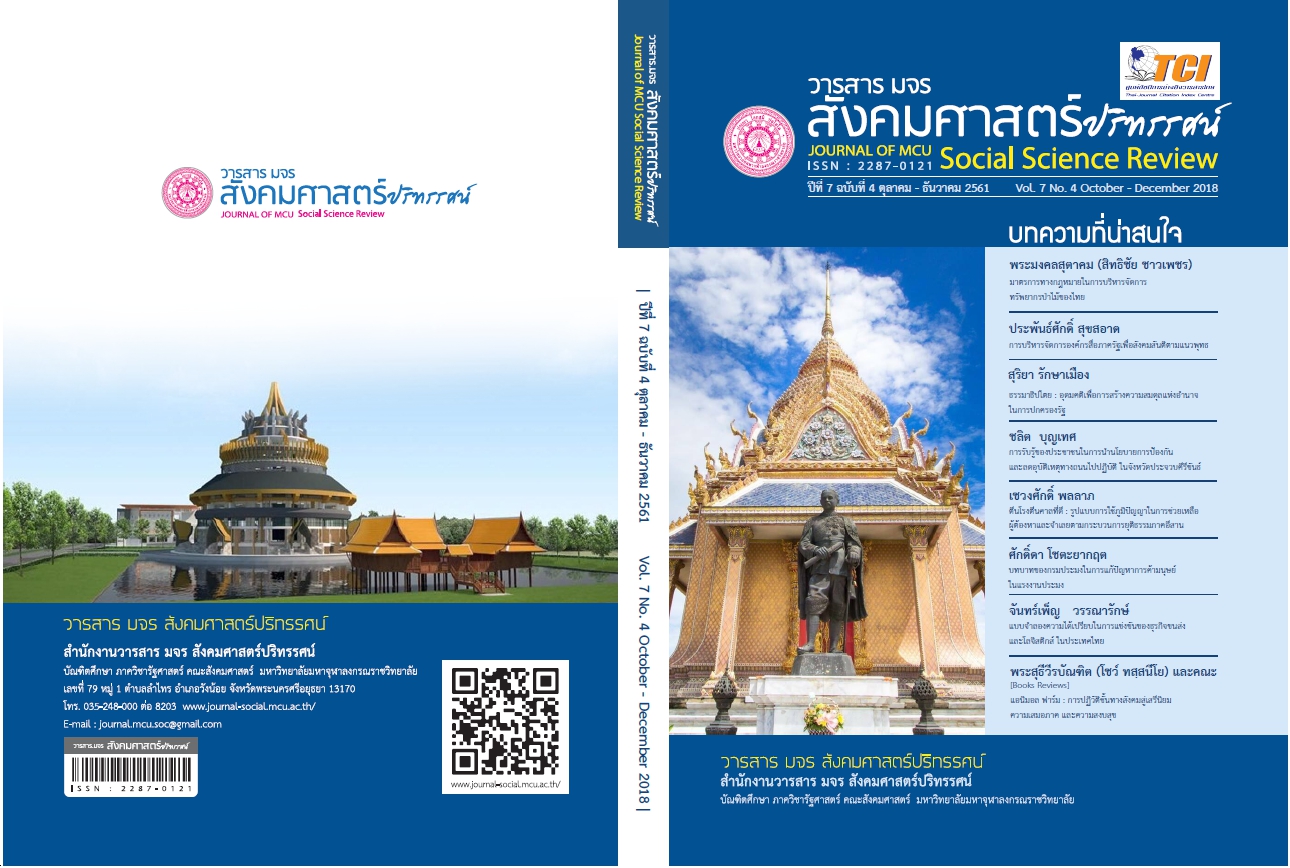ภาพอนาคตตัวบ่งชี้วัดความสำเร็จในการจัดการเรียนการสอนเน้น ทางด้านคณิตศาสตร์วิทยาศาสตร์และเทคโนโลยี สถาบันบัณฑิตพัฒนศิลป์
คำสำคัญ:
ตัวบ่งชี้วัดความสำเร็จ, การจัดการเรียนการสอน, คณิตศาสตร์วิทยาศาสตร์และ เทคโนโลยีบทคัดย่อ
บทความนี้มีวัตถุประสงค์เพื่อกำหนดภาพอนาคตตัวบ่งชี้วัดความสำเร็จในการจัดการเรียนการสอนเน้นทางด้านคณิตศาสตร์วิทยาศาสตร์และเทคโนโลยี สถาบันบัณฑิตพัฒนศิลป์ กลุ่มตัวอย่างของการวิจัยมี 2 กลุ่มคือ กลุ่มผู้เชี่ยวชาญสำหรับคัดเลือกตัวบ่งชี้โดยใช้เทคนิคเดลฟาย จำนวน 17 คน กลุ่มผู้บริหารและครู จำนวน 116 คน เก็บรวบรวมข้อมูลโดยใช้แบบสอบถาม วิเคราะห์ข้อมูลเพื่อหาฉันทามติของการคัดเลือกตัวบ่งชี้โดยใช้มัธยฐาน และพิสัยระหว่างควอไทล์ วิเคราะห์ข้อมูลเพี่อหาตัวบ่งชี้รวมโดยการวิเคราะห์องค์ประกอบ หมุนแกนองค์ประกอบแบบออโธกอนอล ด้วยวิธีแวริแมกซ์ โดยวิเคราะห์แยก 3 ด้านคือ ด้านผู้เรียน ด้านกระบวนการและด้านปัจจัย ผลการวิจัยพบว่า องค์ประกอบสำคัญเกี่ยวกับตัวบ่งชี้รวมที่เหมาะสมสำหรับการวัดความสำเร็จในการจัดการเรียนการสอนเน้นทางด้านคณิตศาสตร์วิทยาศาสตร์และเทคโนโลยี สถาบันบัณฑิตพัฒนศิลป์ ด้านผู้เรียนมี 5 องค์ประกอบ ได้แก่ องค์ประกอบคุณธรรมและสมาชิกที่ดีของสังคม ทักษะในการทำงานและรู้จักตนเอง มีความรู้และทักษะในการแสวงหาความรู้ มีจิตสำนึกที่เห็นแก่ประโยชน์ส่วนรวม และมีสุขลักษณะ ด้านกระบวนการมี 4 องค์ประกอบ ได้แก่ องค์ประกอบการจัดกิจกรรมการเรียนการสอน สิ่งที่เอื้อต่อการเรียนรู้ การบริหารงานขององค์กรและความสัมพันธ์กับชุมชนด้านปัจจัยเกี่ยวกับผู้บริหาร ด้านปัจจัย มี 5 องค์ประกอบ ได้แก่ องค์ประกอบผู้บริหาร ความรู้ความเข้าใจของครูและสื่อ การสนับสนุนจากชุมชนและอาคารสถานที่ ความสามารถในการจัดการเรียนการสอนและคุณธรรมของครู และห้องปฏิบัติการและห้องเรียน
เอกสารอ้างอิง
Office of The Higher Education Commission. (2011). The Quality Assurance of Higher Education Education In Higher Education 2010 (November 2010). Bangkok: Office of Higher Education Quality Assurance.
Pitoon Sinlarat. (2012). Thai Higher Education Philosophy: Guidelines for Producing 5 Graduate Students: The Thai Higher Education Crisis: Origins and The Go. Bangkok: Chulalongkorn University Press.
Sukontha Sintapanont, Wararat Wannarert, and Pannee Sindipanont. (2009). Development of Thinking Skills - Conquest Teaching (4Th Edition). Bangkok: Chulalongkorn University Press.
Suriporn Anuchananan. (2011). Measurement and Evaluation in the Classroom. Chonburi: Get Good Creation.
Liao, T. J. (2009). Art Action Programs That Establish Community Cultural Image: Application of “Action Learning” to Art Curriculum Programs in Liberal Education In Universities. In Journal of Research in Education Sciences, 54(2), 163-198.
Samart Boonrat. (2016). Efficiency for Academic Management of Buddhist School in Loei Province. Journal of MCU Social Science Review, 5(2), 185 – 194.
Walaipun Ajareewattana and Suwimon Tirakanan. (2016). A Study of The Components Comprising The Moral Principles And Ethical Values of Undergraduate Students At Ramkhamhaeng University. Journal of MCU Social Science Review, 5(2), 337 – 342.
Zhangchot Punthuwed. (2009). Qualitative Educational Management: SIPPO. Bangkok: Suan Sunandha Rajabhat University.
ดาวน์โหลด
เผยแพร่แล้ว
รูปแบบการอ้างอิง
ฉบับ
ประเภทบทความ
สัญญาอนุญาต
ลิขสิทธิ์ (c) 2019 วารสาร มจร สังคมศาสตร์ปริทรรศน์

อนุญาตภายใต้เงื่อนไข Creative Commons Attribution-NonCommercial-NoDerivatives 4.0 International License.
เพื่อให้เป็นไปตามกฎหมายลิขสิทธิ์ ผู้นิพนธ์ทุกท่านต้องลงลายมือชื่อในแบบฟอร์มใบมอบลิขสิทธิ์บทความให้แก่วารสารฯ พร้อมกับบทความต้นฉบับที่ได้แก้ไขครั้งสุดท้าย นอกจากนี้ ผู้นิพนธ์ทุกท่านต้องยืนยันว่าบทความต้นฉบับที่ส่งมาตีพิมพ์นั้น ได้ส่งมาตีพิมพ์เฉพาะในวารสาร มจร สังคมศาสตร์ปริทรรศน์ เพียงแห่งเดียวเท่านั้น หากมีการใช้ภาพหรือตารางหรือเนื้อหาอื่นๆ ของผู้นิพนธ์อื่นที่ปรากฏในสิ่งตีพิมพ์อื่นมาแล้ว ผู้นิพนธ์ต้องขออนุญาตเจ้าของลิขสิทธิ์ก่อน พร้อมทั้งแสดงหนังสือที่ได้รับการยินยอมต่อบรรณาธิการ ก่อนที่บทความจะได้รับการตีพิมพ์ หากไม่เป็นไปตามข้อกำหนดเบื้องต้น ทางวารสารจะถอดบทความของท่านออกโดยไม่มีข้อยกเว้นใดๆ ทั้งสิ้น





